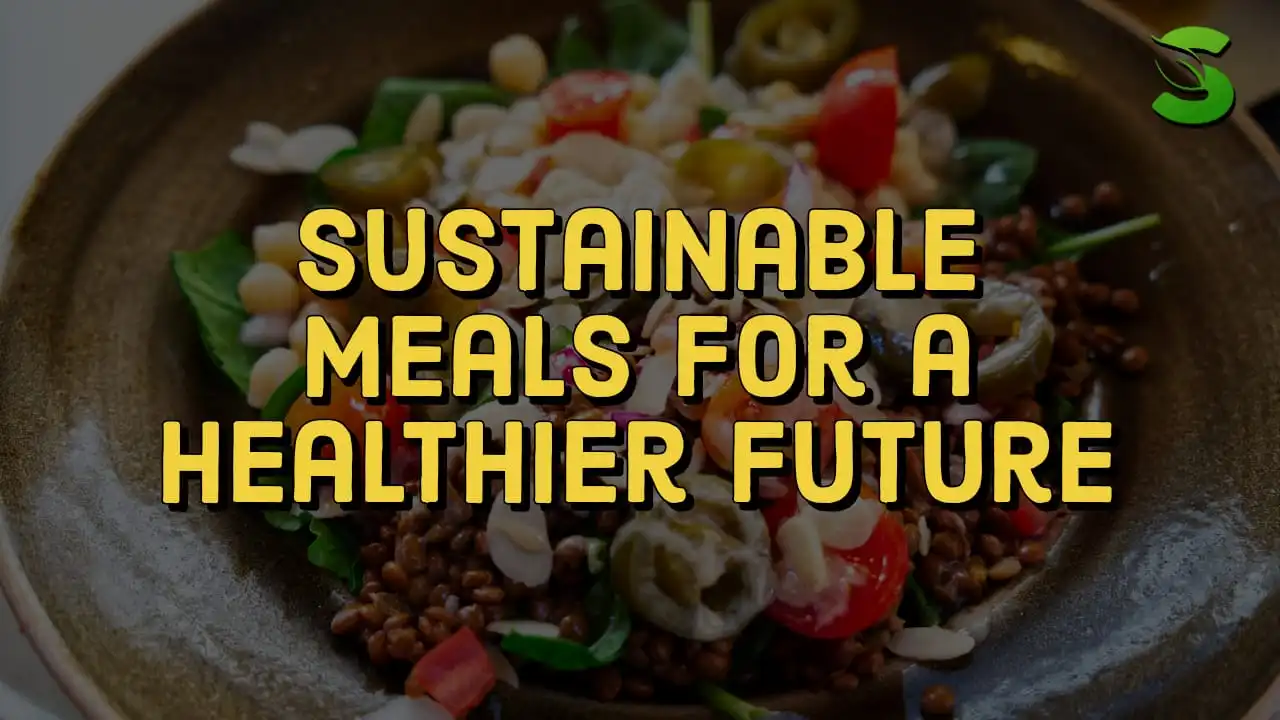In the quest for a healthier lifestyle and a more sustainable future, sustainable meals have emerged as a crucial focal point. we believe that the choices we make regarding our daily meals play a pivotal role in shaping not just our individual well-being but also the health of our planet. In this comprehensive guide, we will delve deep into the concept of sustainable meals, exploring their benefits and how they can contribute to a more environmentally friendly and ethically conscious lifestyle.
What Defines a Sustainable Meal?
Sustainable meals go beyond the mere act of eating; they represent a commitment to making choices that minimize the environmental impact of food production and distribution. Such meals are characterized by the incorporation of locally sourced, seasonal, and organic ingredients. By opting for sustainably produced foods, individuals contribute to reducing their carbon footprint, supporting local farmers, and promoting ethical agricultural practices.
The Environmental Impact of Food Choices
Carbon Footprint Reduction
One of the primary advantages of embracing sustainable meals is the significant reduction in carbon footprint. Conventional agricultural practices often involve extensive transportation of food over long distances, contributing to greenhouse gas emissions. In contrast, choosing locally sourced and seasonal ingredients minimizes the need for extensive transportation, thus lowering the overall carbon footprint associated with your meals.
Preserving Biodiversity
Sustainable meals also play a crucial role in preserving biodiversity. Supporting local farmers who engage in sustainable farming practices helps maintain diverse ecosystems. This is in stark contrast to industrial agriculture, which often leads to monoculture, endangering the variety of plant and animal species essential for a thriving ecosystem.
The Health Benefits of Sustainable Eating
Nutrient-Rich Choices
Opting for sustainable meals isn’t just an environmental choice; it’s a commitment to personal health. Locally sourced and organic foods are often fresher and more nutrient-rich compared to their conventionally produced counterparts. By making sustainable choices, you ensure that your body receives the essential nutrients it needs for optimal well-being.
Reduced Exposure to Harmful Chemicals
Conventional farming practices often involve the use of pesticides and synthetic fertilizers, which can leave residues on the produce. Choosing sustainable meals means minimizing exposure to these harmful chemicals, promoting a cleaner and healthier diet.
Making Sustainable Choices in Daily Life
Supporting Local Farmers
One of the most effective ways to embrace sustainable meals is by supporting local farmers. When you choose locally sourced products, you not only contribute to the local economy but also foster a more direct connection between producers and consumers. This transparency ensures that you are aware of the origin and methods used in the production of your food.
Seasonal Eating
Eating seasonally is another cornerstone of sustainable meal choices. Seasonal produce is not only more flavorful but also requires fewer resources for cultivation. By aligning your diet with the seasons, you actively participate in a more sustainable and eco-friendly food cycle.
Overcoming Common Misconceptions
Cost Considerations
A common misconception about sustainable meals is that they are prohibitively expensive. While it’s true that some organic products may have a higher price tag, the overall cost can be managed by making informed choices, such as prioritizing certain organic items and exploring local farmers’ markets.
Accessibility
Another misconception is that sustainable options are not readily available. However, with the growing awareness and demand for ethical and sustainable products, many supermarkets now offer a variety of choices. Additionally, exploring local markets and connecting with farmers can provide access to a diverse range of sustainable options.
Frequently Asked Questions (FAQ) About Sustainable Meals
Q1: What exactly are sustainable meals?
A1: Sustainable meals involve making choices that minimize the environmental impact of food production and distribution. This includes opting for locally sourced, seasonal, and organic ingredients.
Q2: How do sustainable meals contribute to a healthier planet?
A2: Sustainable meals contribute to a healthier planet by reducing the carbon footprint associated with food production, preserving biodiversity, and supporting ethical agricultural practices.
Q3: Are sustainable meals more expensive?
A3: While some organic products may have a higher price tag, the overall cost of sustainable meals can be managed by making informed choices, such as prioritizing certain organic items and exploring local farmers’ markets.
Q4: How can I support local farmers through sustainable eating?
A4: Supporting local farmers is easy! Choose locally sourced products, shop at farmers’ markets, and engage with community-supported agriculture (CSA) programs to establish a direct connection between producers and consumers.
Q5: Are sustainable options readily available?
A5: Yes, with the growing awareness and demand for ethical and sustainable products, many supermarkets now offer a variety of choices. Additionally, exploring local markets and connecting with farmers can provide access to a diverse range of sustainable options.
Q6: What health benefits come with sustainable eating?
A6: Sustainable eating promotes nutrient-rich choices, as locally sourced and organic foods are often fresher and more nutritious. It also reduces exposure to harmful chemicals commonly found in conventionally produced foods.
Q7: Can I still eat sustainably on a tight budget?
A7: Yes, it’s possible! By making informed choices, such as prioritizing certain organic items and exploring local farmers’ markets, you can manage the cost of sustainable meals even on a tight budget.
Q8: How does eating seasonally contribute to sustainability?
A8: Eating seasonally is a key aspect of sustainable meals. Seasonal produce is not only more flavorful but also requires fewer resources for cultivation, aligning with a more eco-friendly food cycle.
Q9: Are there any misconceptions about sustainable meals?
A9: Yes, common misconceptions include the belief that sustainable meals are prohibitively expensive and not readily available. However, with informed choices and increased awareness, these misconceptions can be dispelled.
Q10: How can I make sustainable choices in my daily life?
A10: Making sustainable choices involves supporting local farmers, eating seasonally, and being mindful of the environmental impact of your food choices. By incorporating these practices into your daily life, you contribute to a healthier and more sustainable future.
Conclusion: A Step Towards a Better Future
In conclusion, adopting sustainable meals is not just a trend; it’s a conscious choice that holds the power to transform our individual well-being and contribute to the broader goal of a healthier planet. By understanding the environmental and health benefits of sustainable eating, we can make informed choices that resonate with our values and contribute to a more sustainable future for generations to come.
ALSO READ |10 Reducing Waste in the Kitchen habits







